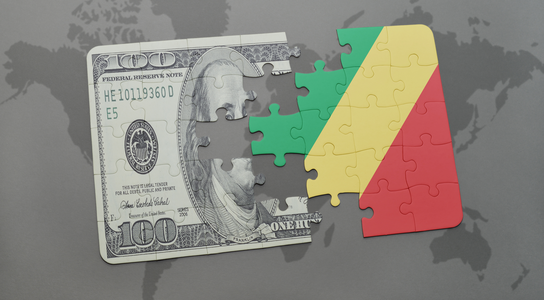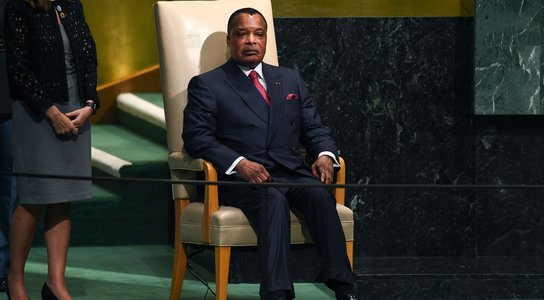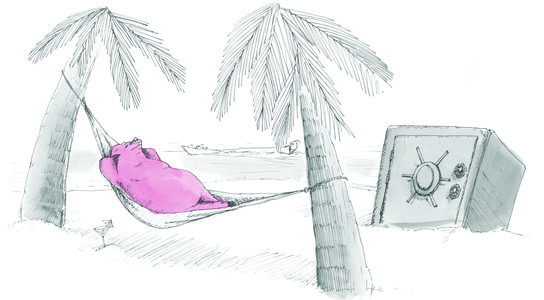The conviction for embezzlement of three senior executives of the former French state oil company, Elf, is a blow against corruption in the global oil industry. But welcome as it is, the verdict will not erase their bitter legacy to Africa of corruption, poverty and suffering.
The case has laid bare decades of destructive meddling in several African countries by Elf, since merged into the private-sector Total. Elf officials bribed politicians, interfered in elections and lured governments into ruinous oil-backed loans in an attempt to protect the company's market share. By funding both sides in Angola's civil war, Elf helped to prolong a conflict that cost an estimated 1.5 million lives and displaced millions of people.
The three most senior of the 37 former Elf officials on trial - Loik Le Floch-Prigent, Alfred Sirven and Andre Tarallo - were not convicted for these misdeeds but for skimming money from Elfs slush funds and for spending it on luxury properties, mistresses and other private perks. Le Floch-Prigent, the company's former chief executive, and Sirvan, his righthand man, were jailed for five years. Andre Tarallo, Elf's head of Africa operations, was jailed for four years.
"It is definitely good news that these corporate raiders have finally been called to account," said Gavin Hayman of Global Witness, the Nobel Prize-nominated group which has long campaigned to expose the role of the oil industry in Africa in fuelling corruption and civil war. "At the same time, it is saddening that the citizens of countries like Congo-Brazzaville and Angola, who suffered so greatly from Elf's meddling, do not have the same opportunity to call the guilty to account in their own countries."
The verdict will focus world attention on the huge risks posed by unaccountability and mismanagement in the oil and mining industries, to the people of resource-rich-but-poor countries and to corporate reputations. If major oil companies do not reveal how much money they are paying to national governments, then it is impossible for citizens in countries like Angola and Congo to find out where this money is going and why it is not being used for their benefit.
"If oil companies were required to publish all their payments to governments, and governments to disclose their payments from companies, then the Elf system could never have come into being," Hayman added. "No-one pretends that Elf is alone in its unscrupulous behaviour. It is time for all governments and extractive companies to take meaningful steps towards transparency, so as to curb this kind of tragedy."
/ ENDS
Notes to editor:
- Global Witness focuses on the links between the exploitation of natural resources and the funding of conflict and corruption. Global Witness is one of the founder members of the Publish What You Pay (PWYP) campaign of over 170 NGOs that are calling for governments, especially those in the G8, to take leadership and promote transparency over resource revenues worldwide (see ). The coalition is calling for Northern stock market regulators to require resource extraction companies to report their net payments to all governments as a condition for being listed on stock markets. The PWYP coalition is participating in the UK Governments Extractive Industry Transparency Initiative, which is exploring options to promote transparency and wise use of oil, mining and gas revenues worldwide.
- Elf was founded in France in 1966 under the presidency of Charles de Gaulle. It soon became the most influential company in the country and its business operations became (too) intricately linked with the French foreign policy. The company is now publicly-owned and has merged to form TotalFinaElf, now called Total. The latter company seeks to differentiate the past behaviour of those on trial with its present management and has stated on numerous occasions that it does not pay bribes. Global Witness sees their leadership on revenue to transparency will be a test-case for this commitment.
You might also like
-
Report The Riddle of the Sphynx: where has Congo’s oil money gone?
A top oil official in the Republic of Congo (ROC) has been secretly selling hundreds of millions of dollars in cut-price oil to private companies he himself owns
-
Briefing IMF must ensure kleptocratic regime in the Republic of Congo does not get another sweet deal
Despite its huge oil reserves, for the second time in less than a decade, the Republic of Congo is on the verge of bankruptcy. Find out why.
-
Report Undue Diligence
How banks do business with corrupt regimes.